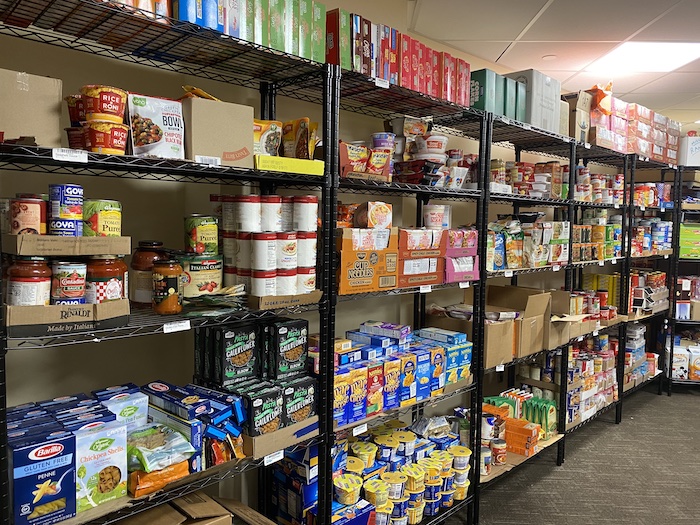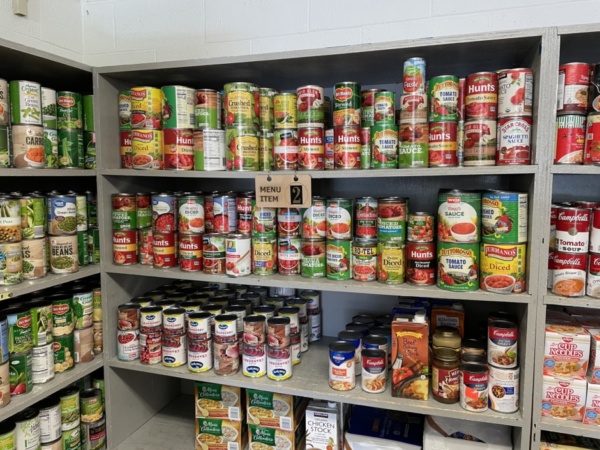Why Sustaining Your Local Food Pantry Is Critical for Aiding Those in Need
The importance of sustaining regional food cupboards can not be overstated, specifically in the context of food insecurity, which impacts a disconcerting number of individuals and households within our communities. As we check out the diverse duty of food pantries, it ends up being noticeable that their impact prolongs far past simply distributing food.
Recognizing Food Insecurity
Food insecurity impacts about 10.5% of households in the United States, illustrating a substantial public health and wellness concern that transcends mere hunger. It describes the lack of consistent access to adequate food for an energetic, healthy and balanced life. This condition can bring about a variety of adverse results, including bad health and wellness, increased health care expenses, and reduced scholastic efficiency amongst kids.
The sources of food instability are diverse, often coming from financial variables such as underemployment, hardship, and joblessness. Geographic area can likewise play a critical role, with food deserts-- areas with minimal accessibility to economical and healthy food-- worsening the concern - Food Pantry Lockhart. In addition, systemic variables, consisting of racial and social inequities, add to the out of proportion impact of food instability on marginalized areas
Addressing food insecurity is not merely concerning enhancing food supply; it calls for a detailed approach that incorporates financial stability, education and learning, and neighborhood assistance. Food instability not just impacts individual wellness however also has broader effects for societal health and wellness and performance. Comprehending its complexity is necessary for establishing reliable interventions and cultivating long-term services that make sure all individuals have dependable accessibility to nourishing food.
The Role of Food Pantries
Neighborhood food kitchens act as essential lifelines for people and family members dealing with food instability. They provide necessary food things to those that may have a hard time to pay for adequate nutrition due to economic hardship, unemployment, or unpredicted conditions. By distributing food at no charge, these organizations assist ease hunger and stop the negative wellness influences connected with poor diets.
Food pantries frequently companion with neighborhood farms, food store, and area organizations to resource a range of nourishing food items, including fresh produce, milk, and healthy proteins. This partnership makes certain that cupboard clients receive not just sustenance yet additionally much healthier choices that add to total wellness.
Furthermore, food kitchens act as area centers, promoting connections amongst citizens and providing a feeling of self-respect to those in demand. Lots of pantries use added resources, such as nourishment education and learning and referrals to social solutions, helping customers navigate their difficulties a lot more properly.
Essentially, food kitchens play a diverse role in combating food insecurity. They not just address immediate appetite yet additionally equip households and individuals to improve their circumstances, consequently promoting neighborhood strength and cohesion.

Benefits of Supporting Food Pantries

Sustaining food kitchens not only nourishes those in requirement yet additionally strengthens the textile of the area. By providing vital food sources, food kitchens relieve cravings and decrease food insecurity, which is vital for the health and health of people and family members. Access to healthy food adds to enhanced physical health, better educational outcomes for youngsters, and enhanced psychological health, thus cultivating an extra effective and involved community.
In addition, sustaining food kitchens promotes social cohesion. These companies serve as centers for area involvement, combining volunteers, contributors, and recipients in a common goal to fight hunger. This collaboration can damage down barriers, foster understanding, and develop partnerships among varied community members.
Furthermore, donations to food cupboards, whether in the form of food, funds, or time, stimulate the regional economy. Numerous food pantries focus on sourcing from neighborhood producers, hence sustaining regional agriculture and businesses. This creates a cycle of assistance that benefits not just those in demand yet the area as a whole.
Exactly How to Get Entailed
Involvement with food pantries can take many forms, permitting people and groups to make a meaningful effect in their communities. Monetary donations are additionally invaluable, as they make it possible for food cupboards to acquire fresh fruit and vegetables and important materials.
Offering your you could look here time is an additional impactful way to support local food kitchens. Numerous companies rely on volunteers for sorting, packaging, and distributing food. This hands-on participation not only aids the kitchen however additionally fosters a sense of area. Furthermore, see post take into consideration arranging food drives within your area, workplace, or college group to raise recognition and collect sources.
Collaborations with regional services can even more improve support for food pantries. By taking these individuals, steps and teams can considerably boost the efforts of neighborhood food kitchens and help those in need.
Neighborhood Influence and Link
Recognizing the profound influence of food kitchens on area well-being is vital for fostering a spirit of link and collaboration. Food cupboards offer not just as essential sources for those facing food instability however also as centers for community interaction. They combine diverse groups-- volunteers, clients, and donors-- producing an atmosphere where individuals can connect and support each other.
The effect of food pantries extends beyond simple stipulation of food; they offer as a driver for social cohesion. By joining pantry efforts, neighborhood members can develop connections that go beyond socioeconomic barriers. This network of support assists to dismantle the stigma usually related to food assistance, fostering an ambience of approval and understanding.
As individuals join in their initiatives to support regional food pantries, they cultivate a sense of common function and obligation, reinforcing the idea that why not check here everyone has a role to play in ensuring that no one goes starving. Eventually, sustaining food cupboards reinforces the material of the area as a whole.
Conclusion
Sustaining local food pantries is necessary in combating food insecurity and enhancing the health of susceptible populations. By guaranteeing access to nutritious food, these companies add to enhanced health results, academic efficiency, and psychological health and wellness. Interaction with food pantries fosters community links, promoting social cohesion and equity. Eventually, the collective effort to bolster these important resources plays a substantial role in constructing a much healthier, much more durable society where all people have the chance to thrive.
